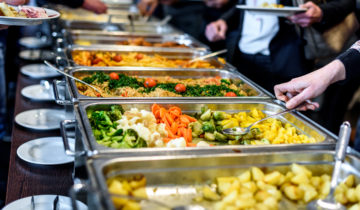Customer satisfaction is key to the success and longevity of a chef’s business. A satisfied customer will be a loyal customer, and through word of mouth, a happy diner will contribute to your establishment’s good image. Although a chef may have mastered every process in the kitchen, they are still dependent on their supply chains. If there is an issue with those supplies, the entire food preparation process will be compromised. As a result, supplier reliability is essential to your customers’ satisfaction. How can you be sure you’re choosing the right ones, who will be trusted partners on whom you can rely?
Impeccable quality and food safety
Food products are rigorously checked to ensure personal safety. They are subject to strict regulations, reinforced by a series of good practices that are confirmed by various certifications (BRC, ISO, etc.). Every step in the production chain needs to be inspected. A commitment to continuous improvement, backed by data, should be a key criterion when choosing a supplier.
In terms of product quality, you should also consider other aspects like the product’s appearance, packaging, manufacturing methods, and so on. Produce a precise set of specifications for your needs and for how the product should meet those needs, and then select the supplier that can best satisfy them. In addition, the development of processed goods should adhere to high production standards in order to guarantee the consistency of their characteristics.
Labels and certifications are proof of a supplier’s professionalism and commitment to making high-quality products. For example, the BRC is an association of about 170 British retailers, such as Tesco or Marks&Spencer. This methodology defines the rules and practices that companies must follow in order to be distributed by British retailers. Today, BRC certification is still relevant to the UK market, but it has become more widely accepted as a standard of good practice for the food sector. Cocotine is proud to be a BRC certified company, recognising the legitimacy of its commitment to quality. In line with our values, it is the proof of the work of our farmer-co-operators and the employees of our processing plants to offer the best egg products to the catering industry. Find all our advice in our kit to be a 100% quality chef!
Trust, the basis for any solid business relationship
Before you sign a contract with a supplier, you should discuss the quality of the associated products and services, particularly their pledge to adhere to ordered quantities, frequencies, delivery lead times, etc. These points should be attentively assessed at the start of your collaboration and lay the foundations for your relationship, based on compliance with these commitments.
But a reliable supplier is also a supplier you trust, a supplier that understands your needs and your customers’ needs and that is transparent about what they are selling you. The origins of raw materials and the farming and production methods utilised are all important to consumers, especially as concerns egg products. These goods need to be safe, easy to work with and possess the expected sensory properties, but they also have to meet the expectations of diners and other consumers in respect of animal welfare and the environment. Having clear, transparent access to this information, verified by independent agencies, should be a prerequisite for earning your trust.
The French cooperative: a model to follow
In this spirit, choosing suppliers organised in agricultural cooperatives provides a concrete response to the notion of food sovereignty. By involving farmers and breeders on a daily basis, the cooperative model is particularly avant-garde in this respect as it is mainly based on the human aspect.
The example of d’aucy foodservice, a French cooperative that manages two sectors, vegetables and eggs, is a good illustration. With a unique, independent and democratic mode of governance based on the principle of “one man, one vote “*, the cooperative pools the means of production and management, so that everyone can develop their activity and make a decent living from it.
Profits are either reinvested or redistributed equitably among the cooperative members. Thanks to the cooperative, there are fewer intermediaries and the income is more advantageous. As for the strategic orientations, they are always debated and voted on because everyone has the right to express themselves. Moreover, a cooperative cannot be relocated and cannot be sold or transferred to a third party. This is a real guarantee for the future of farms that are often passed on from generation to generation.
Being able to count on your suppliers is essential to your business’s long-term operations. Your partners’ reliability is also something that must be measured over time, which is why it’s important to define objectives and indicators in advance. This should include any undesirable outcomes and the implementation of corrective actions to correct these, should they occur. Need some advice to help guide your choice?







